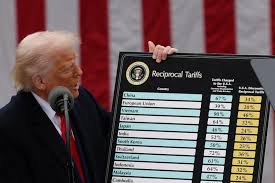Spanish producers are increasingly shifting their focus to alternative markets as U.S. tariffs imposed during Donald Trump’s administration continue to squeeze exports. Sectors such as agriculture, wine, olive oil, and manufacturing have been among the hardest hit, facing significant losses due to the higher costs of selling goods in the American market.
The tariffs, part of broader trade disputes between the U.S. and the European Union, have made many Spanish products less competitive in the United States. As a result, exporters are accelerating efforts to diversify their customer base and reduce dependency on the American market.
"We cannot afford to rely on one major market that can change overnight due to political decisions," said a representative of a Spanish wine exporters' association. "Asia, Latin America, and parts of Europe are becoming increasingly important for our survival."
Spain’s agricultural sector, particularly olive oil and wine producers, has faced some of the steepest challenges. With tariffs raising prices for American consumers, demand for Spanish products has dropped, forcing companies to pursue trade deals and marketing strategies in new regions.
Economists warn that while diversification may help mitigate short-term losses, entering new markets often requires years of investment, new distribution networks, and regulatory adjustments. However, many see this forced shift as an opportunity for Spanish producers to become more globally resilient in the long term.
As global trade tensions persist, Spanish exporters continue to adapt, seeking stability in an increasingly unpredictable international market.
